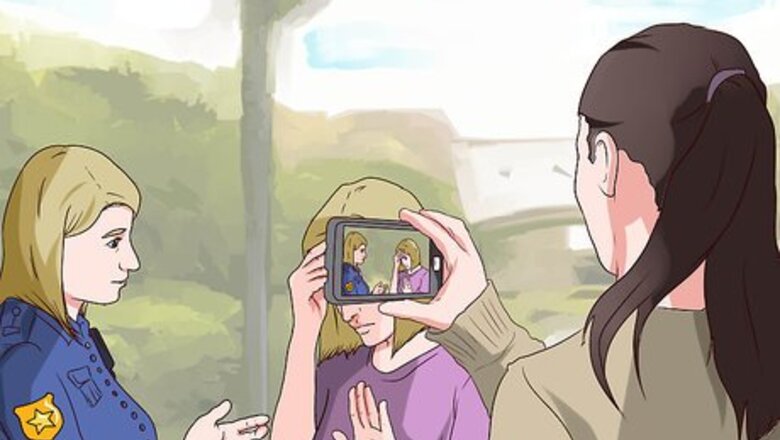
views
- Federal law requires states to make professionals (i.e. pediatricians and teachers) who work around children "mandatory reporters" which means they must report child abuse or neglect by law. In most states, reports from mandatory reporters are considered more reliable than those who are not mandated to report.
- Child welfare investigations are considered a civil matter (not criminal) which means, unlike law enforcement, your Fifth and Sixth Amendment rights do not apply with CPS, and you do not have a right to a court-appointed lawyer until CPS takes legal action.
- It is very important to hire a lawyer once you find out you are the subject of a CPS report. If you cannot afford a lawyer, contact your local bar association for pro bono services.
- An "unfounded" finding does not mean you did not abuse or neglect your child, it only means CPS did not find enough evidence to prove the allegations are true.
Pre-filing stage
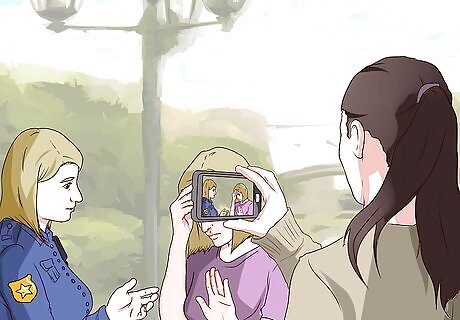
Record CPS. As you would with the police, you should also record any encounter with CPS as they will take notes, but it functions similarly to Wikipedia where CPS can edit what was said, lie in documents, or mislead the judge. By recording, CPS will know you have evidence of what happened. Most states are one-party consent states so all that is needed is your consent, regardless if CPS objects. As you're recording, do not talk to CPS without your attorney present as anything you say can and will be used against you. Be polite! The judge may view you negatively if you cuss or are rude to the caseworker.

Get information. As you're recording, the next step is to ask the caseworker for her contact card (if she has one). Be sure to include her supervisor's name, email, and phone number. If she brought officers with her, ask the cops for their names and badge numbers. This information is important for your lawyer.

Ask for a copy of the report. In many states, CPS may hand you a copy (that redacts the name of the person who reported you) upon request so ask if you can obtain it. This provides you with documentation of what the reporter said about you or your child. In all states, professionals who interact with children are mandatory reporters. This means if they suspect a child is being abused or neglected, they are required by law to report to CPS. Most states consider their reports to be more reliable than those who are not mandated to report so record and do not talk to CPS before seeing an attorney.

Ask to see a court order. If CPS does not have a court order signed by a judge, bring your child outside for the caseworker to see but do not let CPS in your home or search your child. If they have it, ask to see it. Look for the judge's signature and read what CPS has been granted to do. Get the order on video! If CPS wants to enter without a court order, politely state "I do not consent to a search of my home or child per the 4th Amendment." Have it on video! If you cannot take a video, take a picture of the court order as well as with the judge's signature and what it says for your attorney to see. You must let CPS in but do not talk to them without a lawyer.
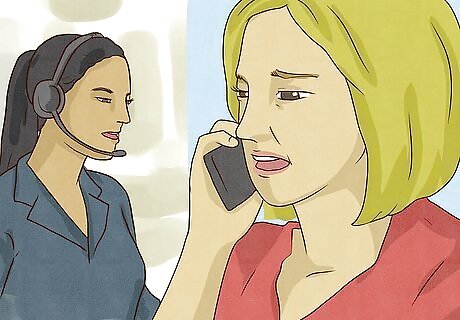
Contact an attorney immediately. After CPS leaves, it is very important to hire a lawyer who has experience in handling CPS cases. While you do not have a right to a court-appointed attorney until CPS takes you to court or your children away, call your local bar association for pro bono services if you cannot afford an attorney. An experienced attorney can help you in several ways: They may negotiate with the government attorney to try and get your case "unfounded" or make a deal that is favorable to you. They may speak to CPS for you. The attorney knows what to say and not to say that can counter the allegations and evidence against you. They may accompany you and your child during an interview so you do not give information that can support the allegations against you. It balances the playing field. What makes CPS powerful is they have attorneys who petition the judge to grant them court orders like access to a home or to take children into state custody. Your attorney can also petition the judge for you like compel CPS to hand over their evidence to you.
Navigating the Legal System
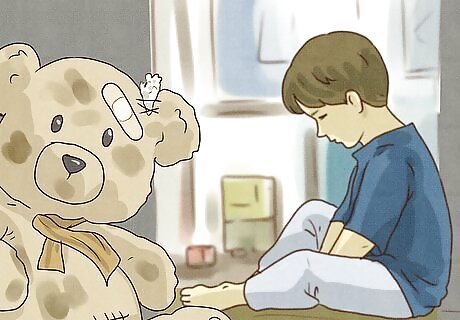
Understand the meaning of a substantiated claim of abuse. The entire investigation comes down to whether or not the investigator "substantiates" the abuse claim. While the standards vary by state, in general, substantiation means there is "probable cause" that the child was mistreated. It means that the state should intervene on behalf of the child to lessen the chance of further harm. This does not mean you have been found guilty of child abuse. It means that there is sufficient reason to continue the investigation. A survey conducted in 2000, looking at over 5,000 reports of child abuse, found that about 29 percent were substantiated. This shows that the vast majority of allegations do not pan out and are closed.
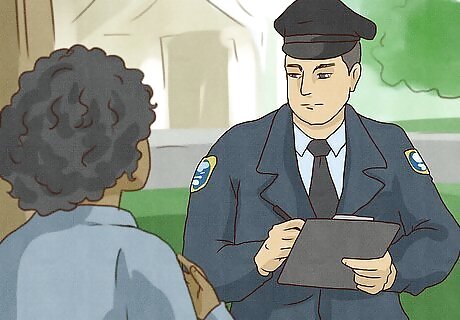
Deal with law enforcement. Depending on the nature of the allegations and whether the case is substantiated by social services, you may find yourself being interviewed by the police. This is a time to know your rights. The first question to ask is if you are under arrest. If the answer is "yes" you must immediately invoke your right to a lawyer. If the answer is "no" then you should strongly consider declining to speak with the police until you can talk with a lawyer. Approximately half to two-thirds of police interviews yield a full or partial confession. Police are professional interrogators. No matter what is said about the interview being "to clear things up," and to "hear your side," you must never forget that they are seeking incriminating information. Even if you are completely innocent, if you have been accused of child abuse, do not speak to the police without first speaking with an attorney.

Make your way through the courts. Child abuse cases can lead to two different types of court cases. The first is criminal, ranging from misdemeanors to serious felonies. The second is the "abuse/neglect" court where social services cases are heard with the goal of reunifying the child with the family. You are likely to end up in an abuse/neglect proceeding if the alleged victim is your own child. There is no chance of being put in jail in this type of court. However, in very serious cases, your parental rights could be severed.

Work with your lawyer and follow court orders. In both types of court cases, you are entitled to have a lawyer appointed to represent you. It is very important that you listen to your attorney. If you have questions about the evidence in the case, including any interviews with the child, discuss it with your attorney. Follow court orders to the letter. While the court is deciding your case, you may be ordered to have no contact with the child. Do not ignore the judge and sneak around to see the child or confront the accuser. Use your common sense. Defying the court makes you look guilty and you could be found in contempt of court. Cooperate with social services. You may be ordered to different types of assessments such as anger management or drug and alcohol counseling. Cooperate with these programs. A glowing report can be a huge step in resolving the criminal or neglect case in your favor.
Healing the Wounds
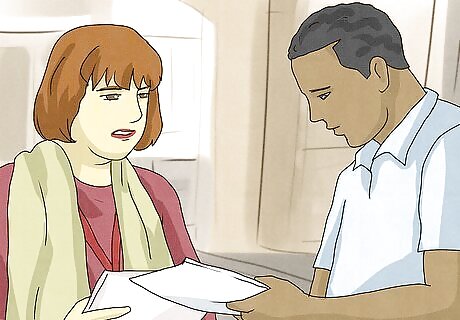
Follow through with social services. Even a case that is completely resolved in your favor may include aftercare services. Social services may check in on you and make sure you finished any programs recommended during the court case. Despite any resentment you may harbor, being polite and professional will get social services out of your life the quickest. Make the social worker feel like there is nothing more to this case and it is time for them to close your file for good.

Seek out counseling and support. Remember, two out of three child abuse cases end up unsubstantiated. Even if your case went to court and was resolved in your favor, you have suffered a huge amount of stress in your life. Whether you seek out a self-help group or enter into therapy, having a non-judgmental outlet can help you cope with the trauma. Your counselor can help you with methods to explain the situation to your friends and family.
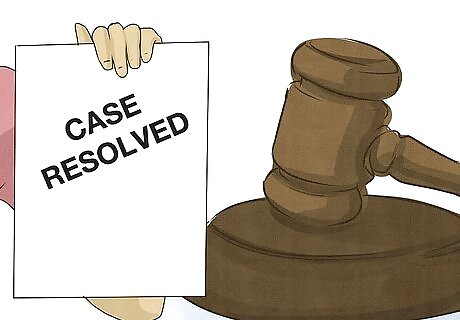
Repair your professional associations. Depending on the circumstances of the child abuse allegations, you may have suffered professional humiliation or even job loss as a result. Speak with your attorney about getting a copy of the best document showing that the case was either closed or resolved in your favor. Use that evidence to help your clear your name with your job, professional associations, and co-workers. Don't let the situation lapse into awkward silence where suspicions may linger about your potential guilt. If a professional license has been suspended or revoked, contact the licensing agency about how to appeal the decision. Typically, this will be done in writing and you can include documents showing that the case against you was unsubstantiated or closed. If allowed, ask for a hearing or meeting to explain it in person. Consult with an attorney to see if you have any legal recourse against your former employer.

Concentrate on the relationship with your child. If the accusations revolved around your child and your family, it can be easy to let hostility and resentment linger and taint your relationships. As you work through your counseling, remember that your child should come first. They may need therapy or counseling as well, and you, as the adult, can help make that happen.

















Comments
0 comment